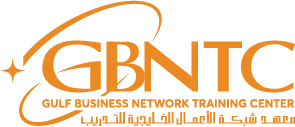Maintaining a climate control system is critical for ensuring its optimal operation and longevity. Regular upkeep not only aids in the performance enhancement of the unit but also plays a significant role in cost reduction. When equipment is well-tended, it operates smoothly, mitigating unexpected breakdowns that can lead to expensive repairs or replacements. For those looking to elevate their energy savings, investing in periodic inspections and services is a wise decision. Explore more about the benefits of system upkeep here.
A comprehensive approach to system care involves thorough examinations, cleaning, and timely adjustments, which collectively contribute to improved functionality. By prioritizing this proactive strategy, homeowners and businesses alike can enjoy a consistent level of comfort while simultaneously lowering energy expenses. Ensuring that your unit runs efficiently can provide significant savings over time, making it a smart choice for anyone looking to benefit from their investment.
Importance of Air Filter Replacement for Optimal Performance
The role of air filters in any climate control system is pivotal, directly influencing overall performance and energy consumption. Regularly swapping out these filters is fundamental in ensuring cleanliness and airflow optimization in your unit. Keeping filters clear of dust and debris not only supports enhanced air circulation but also leads to significant energy savings, allowing the system to function at its best. For more insights on this topic, visit this link.
<p.inadequate a="" airflow,="" an="" and="" appliance="" better="" by="" can="" care="" causing="" clean="" cost="" costs.="" dramatically="" efficiency="" energy="" enhance="" enjoy="" environment="" filter="" filters="" fostering="" hinder="" homeowners="" impact="" increased="" leading="" longevity="" of="" on="" operational="" or="" outdated="" over="" p="" performance,="" preventive="" prioritizing="" promotes="" reduction="" regulation="" replacements,="" severely="" strain="" substantial="" sustaining="" systems.="" temperature="" that="" the="" their="" through="" time.
How to Identify Common HVAC Issues During Routine Inspections
Performing inspections can reveal various problems that may affect the performance and longevity of your system. Identifying these issues early on can lead to significant energy savings and ultimately enhance the overall functionality of the unit. Regular check-ups allow homeowners to detect inconsistencies such as unusual noises, fluctuating temperatures, or inadequate airflow, which may indicate underlying concerns.
Pay special attention to visible components like coils and ducts. Dirty coils can restrict airflow, reducing performance and increasing energy consumption. Check the ductwork for any signs of leaks or blockages that could hinder airflow optimization. Observing these factors regularly is a form of preventive care that ensures your system operates smoothly and reliably. For more insights on maintaining peak performance, click here.
Another common issue is the condition of the electrical connections. Loose wires or corroded terminals can hinder the efficiency of the system, leading to potential breakdowns. Schedule periodic inspections to assess these connections and replace any components that show wear and tear.
Regular check-ups also provide a chance to assess refrigerant levels. An improper balance can not only reduce performance but also shorten the life of the system. Maintaining adequate levels is crucial for optimal operation, and adjustments should only be made by qualified professionals.
Lastly, gauge the thermostat settings for accuracy. An improperly calibrated thermostat can cause unnecessary cycling, which may wear out the system quickly. Ensuring that your thermostat is functioning correctly is key to enhancing the performance of your home’s climate control.
Best Practices for Scheduling Seasonal HVAC Maintenance
Establishing a consistent schedule for seasonal inspections can significantly contribute to energy savings and prolonged system lifespan. Consider utilizing the expertise of professionals like https://artacservice.com/ to ensure that your system receives thorough preventive care. Regular assessments help identify issues early and promote airflow optimization, ultimately enhancing the overall performance of your equipment.
Timing is a critical factor in your scheduling strategy. Aim to align maintenance visits with the onset of peak seasons; typically, a check-up before summer and winter will greatly benefit the system’s output. During these visits, technicians can address any emerging issues, ensuring smoother operation and cost reduction. Keeping a detailed record of maintenance activities can also assist in tracking improvements over time and facilitate timely future visits.
Incorporate reminders for routine tasks such as air filter replacements into your schedule. These minor adjustments play a significant role in boosting the airflow, directly impacting the efficiency of the entire setup. Additionally, a proactive approach reduces the risk of disruptive failures and can lead to considerable performance enhancement.


Comments are closed